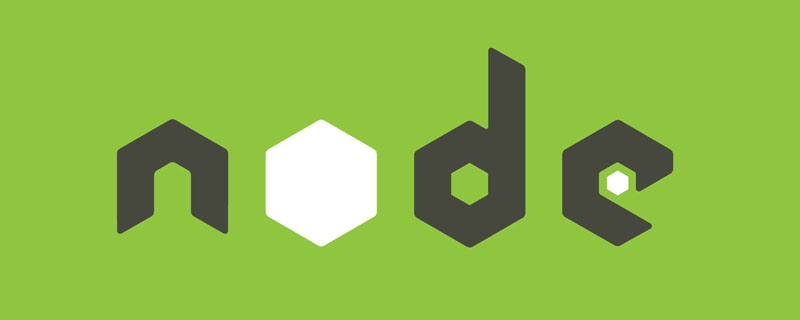Assume a business scenario:
Get the rss through the rss address and save it in the file, and the rss address is saved in the file.
To complete the business of this scenario, you need to complete 3 tasks:
1. Read the rss address from the file.
2. Get rss.
3. Save in file.
Finally integrate these three tasks.
Preparation:
The file that stores the rss address, address.txt.
http://programmer.csdn.net/rss_programmer.html
Task 1:
Read the contents of the rss address file and return it through callback.
var getRssAddress = function(path, callback) {
fs.readFile(path, {encoding: 'utf8'}, function (err, data) {
callback(err, data);
});
}
Mission 2:
Get rss through rss address and return error or data through callback.
var getRss = function(url, callback) {
var data = '';
http.get(url, function(res) {
res.on('data', function(chrunk) {
data = chrunk;
});
res.on('end', function() {
callback(null, data);
});
}).on('error', function(err) {
callback(err, null);
});
}
Mission 3:
Save RSS in file and return error through callback.
var saveRss = function(data, callback) {
fs.writeFile('rss.txt', data, 'utf8', function(err) {
callback(err);
});
}
Integration:
getRssAddress('address.txt', function(err, data) {
if(err) {
console.log(err);
Return;
}
getRss(data, function(err, data) {
If(err) {
console.log(err);
Return;
}
SaveRss(data, function(err) {
If(err) console.log(err);
});
});
});
The above code is fully asynchronous processing, using the most common callback to handle the return of asynchronous logic. The advantage is that it is a standard writing method that everyone can easily accept; the disadvantage is that the coupling is too strong, handling exceptions is troublesome, and the code is not intuitive, especially When dealing with complex business logic and multiple processing tasks, layers of callbacks can make people’s eyes dazzle, making the code difficult to maintain.
when.js, one of the implementations of the Promise/A specification, is aimed at this problem domain.
Let’s take a look at the transformed code.
Mission 1:
var getRssAddress = function(path) {
var deferred = when.defer();
fs.readFile(path, {encoding: 'utf8'}, function (err, data) {
If (err) deferred.reject(err);
deferred.resolve(data);
});
return deferred.promise;
}
Mission 2:
var getRss = function(url) {
var deferred = when.defer();
var data = '';
http.get(url, function(res) {
res.on('data', function(chrunk) {
data = chrunk;
});
res.on('end', function() {
deferred.resolve(data);
});
}).on('error', function(err) {
deferred.reject(err);
});
return deferred.promise;
}
任务3:
var saveRss = function(data) {
var deferred = when.defer();
fs.writeFile('rss.txt', data, 'utf8', function(err) {
if(err) deferred.reject(err);
deferred.resolve();
});
return deferred.promise;
}
整合:
getRssAddress('address.txt')
.then(getRss)
.then(saveRss)
.catch(function(err) {
console.log(err);
});
解释:
promise/A规范定义的“Deferred/Promise”模型就是“发布/订阅者”模型,通过Deferred对象发布事件,可以是完成resolve事件,或者是失败reject事件;通过Promise对象进行对应完成或失败的订阅。
在Promises/A规范中,每个任务都有三种状态:默认(pending)、完成(fulfilled)、失败(rejected)。
1.默认状态可以单向转移到完成状态,这个过程叫resolve,对应的方法是deferred.resolve(promiseOrValue);
2.默认状态还可以单向转移到失败状态,这个过程叫reject,对应的方法是deferred.reject(reason);
3.默认状态时,还可以通过deferred.notify(update)来宣告任务执行信息,如执行进度;
4.状态的转移是一次性的,一旦任务由初始的pending转为其他状态,就会进入到下一个任务的执行过程中。
按照上面的代码。
通过when.defer定义一个deferred对象。
var deferred = when.defer();
异步数据获取成功后,发布一个完成事件。
deferred.resolve(data);
异步数据获取失败后,发布一个失败事件。
deferred.reject(err);
并且返回Promise对象作为订阅使用。
return deferred.promise;
订阅是通过Promise对象的then方法进行完成/失败/通知的订阅。
getRssAddress('address.txt')
.then(getRss)
then有三个参数,分别是onFulfilled、onRejected、onProgress
promise.then(onFulfilled, onRejected, onProgress)
上一个任务被resolve(data),onFulfilled函数就会被触发,data作为它的参数.
上一个任务被reject(reason),那么onRejected就会被触发,收到reason。
任何时候,onFulfilled和onRejected都只有其一可以被触发,并且只触发一次。
对于处理异常,when.js也提供了极其方便的方法,then能传递错误,多个任务串行执行时,我们可以只在最后一个then定义onRejected。也可以在最后一个then的后面调用catch函数捕获任何一个任务的异常。
如此写法简单明了。
getRssAddress('address.txt')
.then(getRss)
.then(saveRss)
.catch(function(err) {
console.log(err);
});
Promise给异步编程带来了巨大的方便,可以让我们专注于单个任务的实现而不会陷入金字塔厄运,以上代码仅仅是基本使用,when.js提供的功能远远不止本文提到的这些,具体参照官方API。
 Vercel是什么?怎么部署Node服务?May 07, 2022 pm 09:34 PM
Vercel是什么?怎么部署Node服务?May 07, 2022 pm 09:34 PMVercel是什么?本篇文章带大家了解一下Vercel,并介绍一下在Vercel中部署 Node 服务的方法,希望对大家有所帮助!
 node.js gm是什么Jul 12, 2022 pm 06:28 PM
node.js gm是什么Jul 12, 2022 pm 06:28 PMgm是基于node.js的图片处理插件,它封装了图片处理工具GraphicsMagick(GM)和ImageMagick(IM),可使用spawn的方式调用。gm插件不是node默认安装的,需执行“npm install gm -S”进行安装才可使用。
 怎么使用pkg将Node.js项目打包为可执行文件?Jul 26, 2022 pm 07:33 PM
怎么使用pkg将Node.js项目打包为可执行文件?Jul 26, 2022 pm 07:33 PM如何用pkg打包nodejs可执行文件?下面本篇文章给大家介绍一下使用pkg将Node.js项目打包为可执行文件的方法,希望对大家有所帮助!
 一文解析package.json和package-lock.jsonSep 01, 2022 pm 08:02 PM
一文解析package.json和package-lock.jsonSep 01, 2022 pm 08:02 PM本篇文章带大家详解package.json和package-lock.json文件,希望对大家有所帮助!
 分享一个Nodejs web框架:FastifyAug 04, 2022 pm 09:23 PM
分享一个Nodejs web框架:FastifyAug 04, 2022 pm 09:23 PM本篇文章给大家分享一个Nodejs web框架:Fastify,简单介绍一下Fastify支持的特性、Fastify支持的插件以及Fastify的使用方法,希望对大家有所帮助!
 node爬取数据实例:聊聊怎么抓取小说章节May 02, 2022 am 10:00 AM
node爬取数据实例:聊聊怎么抓取小说章节May 02, 2022 am 10:00 AMnode怎么爬取数据?下面本篇文章给大家分享一个node爬虫实例,聊聊利用node抓取小说章节的方法,希望对大家有所帮助!
 手把手带你使用Node.js和adb开发一个手机备份小工具Apr 14, 2022 pm 09:06 PM
手把手带你使用Node.js和adb开发一个手机备份小工具Apr 14, 2022 pm 09:06 PM本篇文章给大家分享一个Node实战,介绍一下使用Node.js和adb怎么开发一个手机备份小工具,希望对大家有所帮助!
 图文详解node.js如何构建web服务器Aug 08, 2022 am 10:27 AM
图文详解node.js如何构建web服务器Aug 08, 2022 am 10:27 AM先介绍node.js的安装,再介绍使用node.js构建一个简单的web服务器,最后通过一个简单的示例,演示网页与服务器之间的数据交互的实现。


Hot AI Tools

Undresser.AI Undress
AI-powered app for creating realistic nude photos

AI Clothes Remover
Online AI tool for removing clothes from photos.

Undress AI Tool
Undress images for free

Clothoff.io
AI clothes remover

AI Hentai Generator
Generate AI Hentai for free.

Hot Article

Hot Tools

Dreamweaver Mac version
Visual web development tools

MinGW - Minimalist GNU for Windows
This project is in the process of being migrated to osdn.net/projects/mingw, you can continue to follow us there. MinGW: A native Windows port of the GNU Compiler Collection (GCC), freely distributable import libraries and header files for building native Windows applications; includes extensions to the MSVC runtime to support C99 functionality. All MinGW software can run on 64-bit Windows platforms.

MantisBT
Mantis is an easy-to-deploy web-based defect tracking tool designed to aid in product defect tracking. It requires PHP, MySQL and a web server. Check out our demo and hosting services.

Atom editor mac version download
The most popular open source editor

Notepad++7.3.1
Easy-to-use and free code editor






